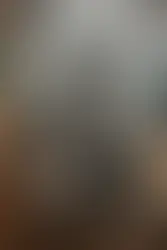Voices of Resilience: Confronting Censorship in the Arts
- Maddalena Luberti
- Oct 10, 2024
- 4 min read
Updated: Oct 18, 2024

The sound of Ahmed Adnan’s oud warmed the brutalist walls of the Barbican’s Cinema 1 as Comma Press presented Voices of Resilience. Stepping into the hall, I was filled with a plangent sense of anticipation—this was the first Palestinian event at the Barbican, yet it came a full nine months after the escalation of violence back in October. The event was centred around Atef Abu Saif’s diary reporting his visit to the Gaza Strip in October when conflict broke out. His writings were coupled with a selection of diary excerpts and curated poetry by Nahil Mohana, Sondos Sabra, and Ala'a Ebeid, and performed by actors Nabil Elouahabi, Maxine Peake, Yusra Warsama and poet Hind Shoufani. Like Palestine, the show itself has shown resilience; in almost all of its productions across the UK, it faced censorship. In April, it was finally presented at HOME Manchester after having been previously cancelled. Once more, the event was threatened to be shut down in light of its scheduling at the Barbican, due to UK Lawyers for Israel (UKLFI), claiming that they “[had] been approached by members of the public who are concerned that this performance will be promoting a political viewpoint, and talking about a so-called “genocide” in Gaza, when no genocide has actually occurred.” What is so political about the human experience? A poem by Marwan Makhoul came to mind:
In order for me to write poetry that isn’t political
I must listen to the birds
and in order to hear the birds
the warplanes must be silent.
I reached out to Ra Page by email a few days after the event, curious about the decision to host the show at the Barbican, despite the venue having faced much backlash in the past months over its controversial attitude towards the ongoing conflict. Page explained that the choice to focus on the Barbican was intentional, not only because of its regard as a well-known arts institution but also due to its past shortcomings in safeguarding Palestinian perspectives. There have been two notable instances where the Barbican succumbed to pressure, leading to the cancellation or censorship, including those of Pankaj Mishra and Radio Al-Harra. Page tells me “The point of Voices of Resilience is to set a new precedent. To show other arts organisations that the tide is turning, and that they don't have to be bullied anymore. The Barbican can stand up for themselves, so everyone else can.” Despite my initial scepticism regarding the Barbican’s motives, I agreed with Page. Its public stance against UKLFI and its reinstatement of Voices of Resilience was a significant shift. Despite past failures, the institution was finally taking a stand and (fingers crossed) setting an example. Naomi Wimborne-Idrissi, a prominent member of Jewish Voices for Labour, also chose to touch upon the subject of censorship during the closing Q&A. She thanked the Barbican for hosting a Palestinian event, 9 months after the start of the conflict in Gaza–her smile betraying a hint of wryness. She explained, “expression of Palestinian humanity that the Israeli state and supporters are trying to erase and why events like this are so incredibly important.”
How can an event, described on the pamphlet handed to us at the entrance as a “a poignant evening of Palestinian writing and poetry” be a threat? The question of censorship and perceived threat surfaced repeatedly throughout the performances and the final panel discussion. Yusra read out an excerpt from Sabra’s diary where she cries out into the impassive silence of grief, grappling with the death of her nieces and nephews by two Israeli missiles. She writes with bitter irony, “Today ‘terrorism’ was hiding in the body of Omar, my six-year old nephew. Perhaps in his heart, or maybe among his soft locks of hair.” I asked myself the same question. Was terrorism in the room with us, sitting beside me, leafing through the program? Is terrorism in our art? In our poetry? Perhaps it is in our songs? Or maybe the explanation is simpler. Censorship is born from the fear of what art can disrupt and demand. It is not terrorism that’s being silenced, but the honest expression of human suffering and resilience.
As talk of death crept up into the performances, the weight of the evening grew heavier. Abu Saif’s words resounded in my chest: “I see death approaching, its steps growing louder.” Death was spoken of in all of its forms–inevitable, impassive, unjust yet so familiar. I reflected on my own fear of death, and my daily battles grappling with its presence in my life. When Nahil Mohana spoke of how "[she] hadn't realised until then how much having neighbours nearby makes the prospect of dying more bearable; dying with friends around you would be a mercy compared to dying on your own"—I was moved by the simple truth. Death is frightening, but the prospect of dying alone is perhaps even more so. She captures how we long to share the weight of it as though, by doing so, we disarm it. But even death is censored when it disrupts comfortable narratives. Despite every attempt to silence it, death demands to be faced.
All throughout the evening, Ahmed Adnan lulled us with his oud, his fingers nimbly weaving spoken word into song. The room was charged with a shared sense of humanity– felt in every word, note, and tear that was shed.
Edited by Dan Ramos Lay, Literature Editor
























































Comentários